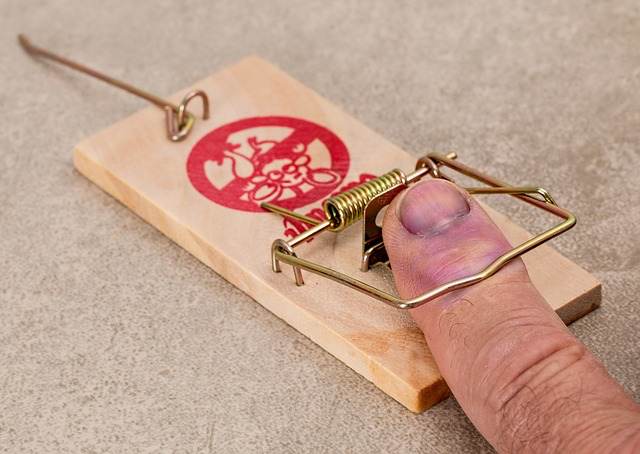Covid-19 uncertainty could prolong trapping of ILS capital: RenRe
For insurance-linked securities (ILS) contracts and structures that have exposure to potential losses from the Covid-19 corornavirus pandemic, the chances are that their capital and collateral could be trapped for a prolonged duration, executives from RenaissanceRe have suggested.
 Analysts from Wells Fargo Securities had discussions with reinsurance firm RenaissanceRe’s CFO Bob Qutub and other executives recently, discussing the state of the market, the implications of the Covid-19 pandemic and their outlook.
Analysts from Wells Fargo Securities had discussions with reinsurance firm RenaissanceRe’s CFO Bob Qutub and other executives recently, discussing the state of the market, the implications of the Covid-19 pandemic and their outlook.
Given RenRe’s position as one of the largest managers of third-party capital from institutional investors that is deployed into reinsurance and retrocession through a range of joint-venture vehicles, funds, and other structures, the company is well-placed to have a view on the prospects for ILS investors later this year, when the retention of collateral issue is likely to emerge.
As we’ve explained before, the complexity and uncertainty associated with Covid-19 does mean that some ILS capital will be trapped at year-end, with cedents set to request collateral is retained for any contracts that could end up providing them with protection.
With litigation and legislation risk hanging over the potential claims from Covid-19, an extra layer of uncertainty is added to the proceedings.
As collateralised reinsurance, retrocession and many reinsurance sidecars will all end their risk periods at the end of December, in advance of the January renewal date, it’s expected that trapped ILS capital will become an issue in some quarters at year-end.
RenRe’s executives highlighted that the January reinsurance renewals are expected to be challenging, given the uncertainty around the market and the potential impacts to third-party capital.
The company expects there will be more trapped capital, meaning a chance of their being less deployable ILS capacity at the January 2021 renewal season.
Of course, this could help to sustain the rate momentum seen at this mid-year, which won’t be a disappointment to those that are not exposed to Covid-19 and those for who collateral is freed up again.
There is some fatigue in the ILS system, RenRe’s executives said, after ILS capital has been trapped in the last few years at consecutive renewals.
But most telling, the executives from RenRe suggested that they are not optimistic around trapped ILS capital being released quickly this time around.
The uncertainty associated with the pandemic is likely to drive some cedents to seek to hold collateral for longer, in case of unexpected losses developing in the future.
The only reason trapped ILS capital generally gets released, is the absence of uncertainty and a greater clarity over the actual level of losses suffered by a cedent, or attributable to a structure or contract.
In the case of Covid-19 this may not become apparent for a long time and uncertainty may be prolonged, causing the length of time collateral is held for to be prolonged as well.
Our sources said there are already murmurings in the market about capital trapping with some sidecars being a strong likelihood towards the end of the year.
Quota shares and other risk sharing structures remain particularly exposed, given their generally broader coverage.
Collateral supporting pools of risk such as excess and surplus lines, or fronted insurance business, could also be an area for trapping of capital to occur.
On an excess of loss basis, where the collateralised reinsurance market plays, it will come down to how much evidence a cedent can provide of IBNR or ultimate and whether it reaches the levels in buffer tables to trigger a trapping of the collateral.
But one thing is certain amidst all the uncertainty, cedents facing Covid-19 losses and with ILS backed reinsurance or retrocessional protection in place, are almost certain to do their best to hold onto collateral if losses are still developing, which they are very likely to be.
So, again, terms and wordings will be key towards the end of this year, as well as buffer loss table clauses and how they are structured.
The collateralised retrocession market could be an area of specific and heightened uncertainty, given it is one level further down the protection chain.
All of this will make things interesting for some ILS players and investors, but could play into the hands of those with rated vehicles, fronting partners and other ways to mitigate the trapped collateral risk.
Providing continuity to cedents could be a challenge for some at the January 2021 renewals as a result of trapped capital, giving an opportunity to those that avoid it to gain market share, perhaps raise new capital and grow into the next year.
Covid-19 uncertainty could prolong trapping of ILS capital: RenRe was published by: www.Artemis.bm
Our catastrophe bond deal directory
Sign up for our free weekly email newsletter here.
Original Article Posted at : https://www.artemis.bm/news/covid-19-uncertainty-could-prolong-trapping-of-ils-capital-renre/
